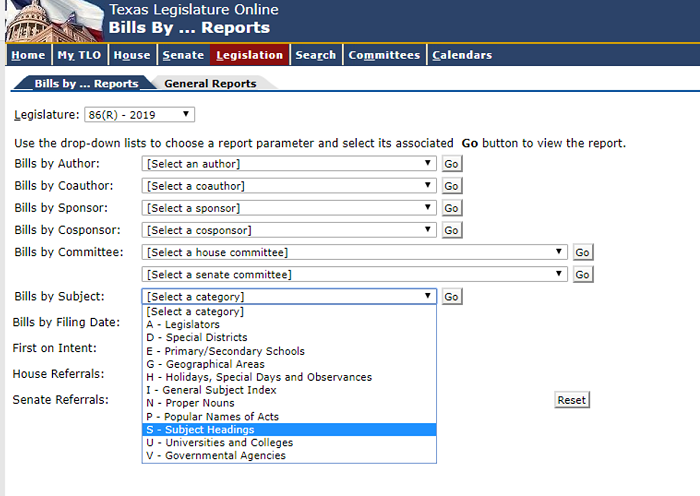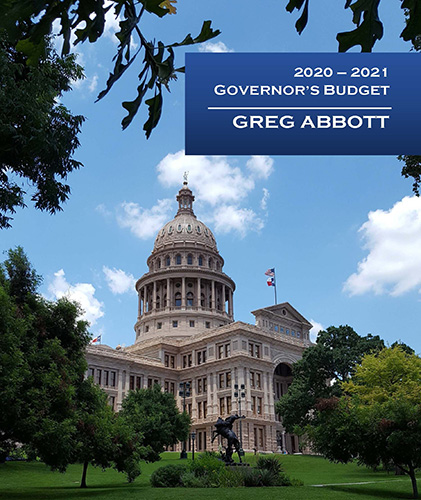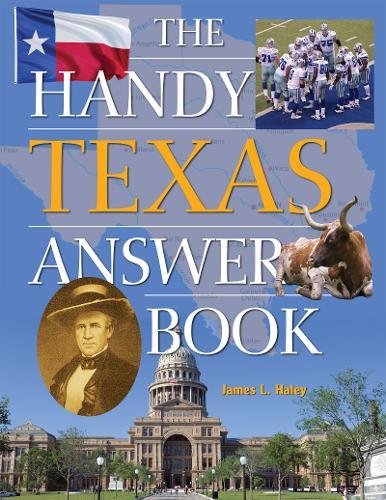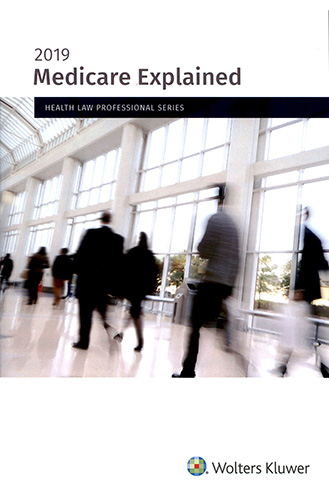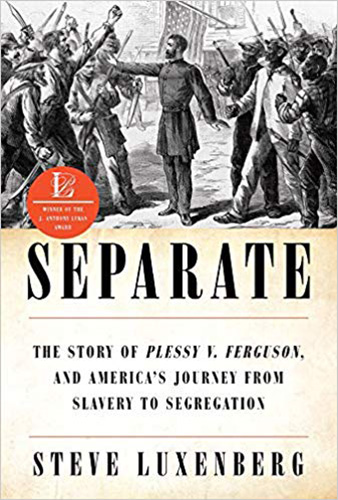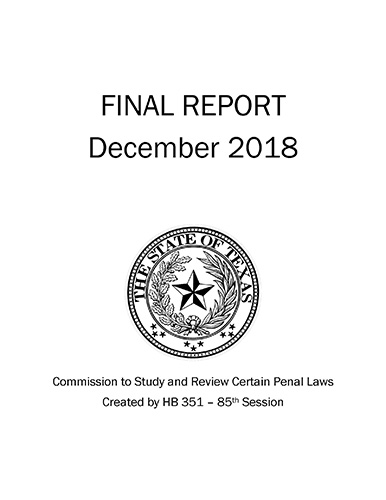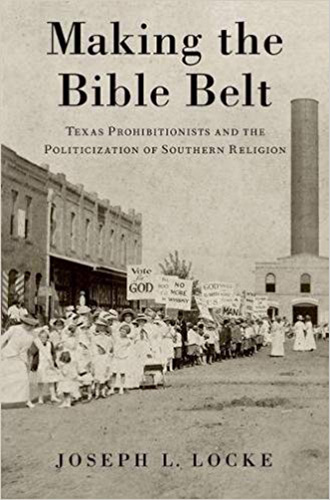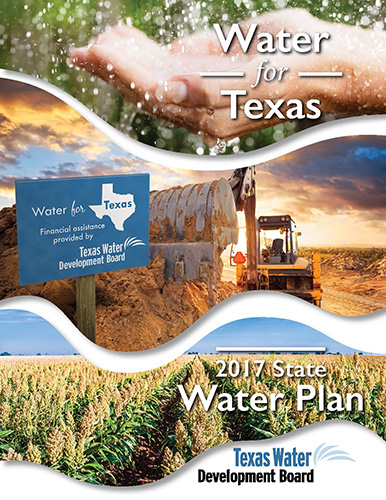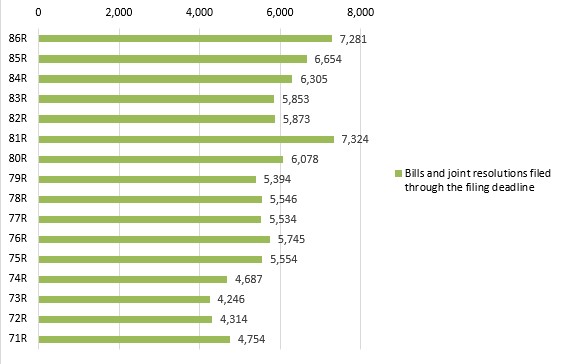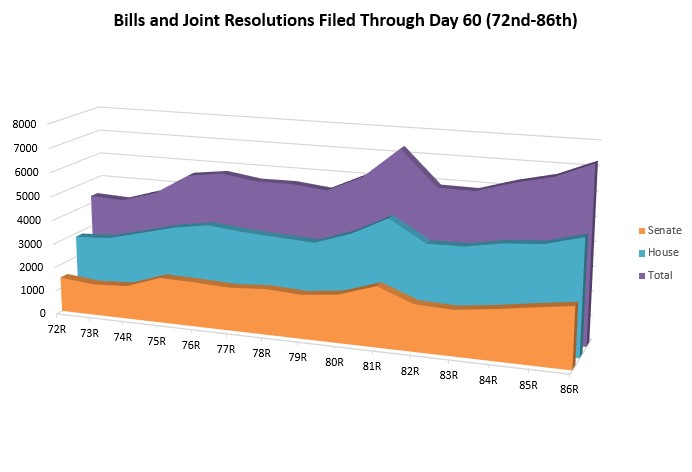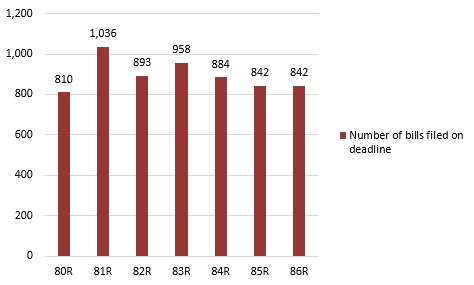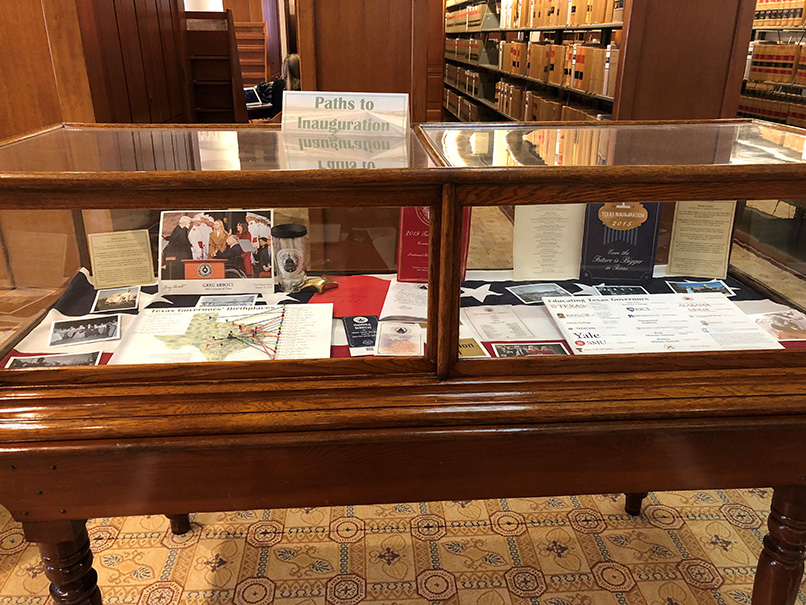In this weekly post, we feature helpful research tools and recent articles of interest to the legislative community.
- See how Austin tops the list of best cities for wildlife. (National Wildlife Federation, March 12. 2019)
- Note the federal rule banning bump stocks became effective on March 26, 2019. (The Federal Register, accessed March 27, 2019)
- Find judicial nomination statistics for U.S. district and circuit courts. (Congressional Research Service, March 21, 2019)
- Get answers to all your bluebonnet questions. (Lady Bird Johnson Wildflower Center, ©2019)
- "Texas may collect more online sales taxes." By Kimberly Reeves. Austin Business Journal, March 22, 2019, p. 18.
Highlights SB70 and SB890, 86th Legislature, proposals creating a streamlined process to collect sales tax from out-of-state online retailers and setting up the mechanism for the remittance of payments. Includes comments by Senator Donna Campbell and mentions former Representative John Otto. - "Solving unsolved murders." By Patrik Jonsson. Christian Science Monitor, March 4, 2019, pp. 24-30.
Explains over 250,000 unsolved murder cases have accumulated in the United States since 1980, with a current average of 40 percent of cases going unsolved. Discusses the causes of the increased caseload and new approaches to solving cold cases. - "Day care for all." Economist, March 9th-15th, 2019, pp. 26, 28.
Suggests a proposal for nationwide publicly-funded child care centers would be less efficient than simple cash transfers to poor families with children. - "Immigrant health, value-based care, and emergency Medicaid reform." By Dhruv Khullar and Dave A. Chokshi. JAMA (Journal of the American Medical Association), March 12, 2019, pp. 928-929.
Argues that there are economic and public health advantages to states availing themselves of existing policy options to provide limited, value-oriented health care coverage (such as prenatal and dialysis-related care) to immigrant populations. - "Anyone's game: Sports-betting regulations after Murphy v. NCAA." By Patrick Moran. Legal Policy Bulletin (CATO Institute), March 11, 2019, pp. 1-10.
Suggests the federal government should leave the regulation of sports betting to the states, as they have done for other types of gambling. Related information at: https://www.supremecourt.gov/opinions/17pdf/16-476_dbfi.pdf. - "Mexican-American resistance to school segregation." By Jarrod Hanson and Ruben Donato. Phi Delta Kappan, February 2019, pp. 39-42.
Examines the school segregation of Mexican-American children by highlighting five court cases (including two from Texas) that illustrate how local school officials made intentional decisions based on social status and race. - "Who benefits from increasing health insurance subsidies: Patients or providers?" By Marika Cabral. Policy Brief (Stanford Institute for Economic Policy Research), March 2019, pp. 1-4.
Finds that a little over half of Medicare Advantage subsidy increases are passed on to beneficiaries in the form of lower premiums or improved benefits — a pressing concern for seniors who depend on Medicare for health care coverage. - "Does storage increase carbon? Expect the unexpected." By Charles Bayless. Public Utilities Fortnightly, March 2019, pp. 54-58.
Explains how energy storage transactions could actually increase carbon emissions. Related information at: https://inesazevedo.org/wp-content/uploads/2015/09/HIttinger_2015.pdf. - "Poll on paid sick leave hints at voters' power of change." By Tony Quesada. San Antonio Business Journal, March 15, 2019, p. 3.
Examines a recent poll that showed 74 percent of Texas voters support municipalities requiring businesses to offer paid sick days. - "Rural America faces a housing cost crunch." By Tim Henderson. Stateline (Pew Charitable Trusts), March 25, 2019, pp. 1-4.
Discusses the problem of housing affordability, attributing the crisis in rural rental housing to the expiration of federal incentive programs. Points out Texas' Irion County had one of the largest household cost-burden increases in 2017. - "A field guide to the taxes of Texas." Texas Comptroller of Public Accounts, March 2019, pp. 1-25.
Provides a graphical overview of major Texas state and local taxes, including sales and use, motor vehicle sales, motor fuel, franchise, oil production, and natural gas production taxes. Describes revenue by source, future revenue growth, historical volatility, and major exemptions for each tax. Includes charts on local property and sales taxes. - "Rounds: News from America's best medical society." By Joey Berlin, Sean Price, and David Doolittle. Texas Medicine, March 2019, pp. 14-19.
Summarizes highlights of the Texas Medical Association [TMA]'s recent advocacy concerns, including a pay bump for physicians seeing Medicaid patients, insurance reform, rural hospitals, maternal and children's health issues, and do-not-resuscitate [DNR] laws. - "Home economics." By Gus Bova and Christopher Collins. Texas Observer, March/April 2019, pp. 24-28.
Examines how immigrants are reviving rural communities such as Dalhart, Texas, where most voters support President Donald Trump.

